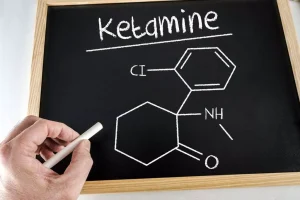
Alcohol is the most commonly abused drug among adolescents in the United States. Further, psychological distress, especially depression and anxiety, has been shown to play an important role in such substance use. Biological factors such as enzyme profile can influence the amount of alcohol people ingest, the pleasantness of the experience, harmful effects on the body, and the development of disease.
Phone, Video, or Live-Chat Support

As alcohol consumption increases, the liver adapts to break down alcohol more quickly. Over time, repeated alcohol exposure also alters a person’s brain chemistry. To counteract the sedating effects of alcohol, for example, the brain increases the activity of excitatory neurotransmitters, which speed up brain activity. But why do people become alcoholics some people who drink face a risk of developing this chronic and progressive disease, which affects roughly 1 in every 8 Americans and contributes to about 88,000 deaths annually. Under the direction of licensed therapists or counselors, behavioral therapies involve psychological strategies to modify drinking behaviors.
- Although the exact cause of alcohol use disorder is unknown, there are certain factors that may increase your risk for developing this disease.
- Contact us and we can begin the process of building a life worth living.
- Above, we mentioned how science tells us that alcoholism is indeed a medical condition.
- Addiction is not a property of the substance ingested or activity engaged in.
- At this point, you have an attachment to alcohol that has taken over your regular routine.
- Other than the fact that someone is drinking more than usual, it might be hard to detect that there’s even a problem because outwardly the alcoholic appears normal.
Myth: If you’ve been drinking responsibly for years, you’re not going to become addicted to alcohol.

It’s fun for some people, but there is no medical reason to do it or health benefit from it. Undergoing treatment for AUD can be challenging, and there’s always a risk of relapse. Making such a significant life change can cause emotional turmoil, including guilt for past behaviors or burdening others. As a loved one of someone with an alcohol addiction, try to be encouraging and provide emotional support.
Recovery Is Possible
Middle-stage alcoholics may become irritable or angry if confronted about their drinking. As the disease progresses to the middle stage, drinking continues to increase and dependency develops. Strong cravings for alcohol are typical at this stage, and drinking isn’t just for enjoyment anymore.
- But alcohol is also classified as a depressant and can cause fatigue, restlessness, and depression.
- One of the key reasons, according to the data, is that people continue to participate for years after they have completed the 12-step program.
As a result, virtually anyone can become an alcoholic if they continue to abuse it over long periods of time. Cirrhosis of the liverOur liver filters out harmful substances, cleans https://ecosoberhouse.com/article/cognitive-dissonance-treatment-in-sober-living/ our blood, stores energy and aids in digestion. Too much alcohol can be toxic to liver cells, causing dehydration and permanent scarring—which ultimately affects the blood flow.
- Programs are usually 30 days long and during this time individuals suffering from alcoholism will receive the care and support they need to start their journey to sobriety.
- You might miss work, forget to pick up the kids, become irritable, and notice physical signs of alcohol abuse (facial redness, weight gain or loss, sluggishness, stomach bloating).
- But as you continue to drink, you become drowsy and have less control over your actions.
- Some people may be hesitant to seek treatment because they don’t want to abstain entirely.
- Some people drink heavily all day, while others binge drink and then stay sober for a while.
Patient Care Network
- A person who engages in these practices may also develop alcoholism.
- Cognitive behavioral therapy is another path, available in person or online.
- Alcohol can trigger parasomnias, involuntary sleep behaviors that contribute to poor sleep quality, such as sleep talking and sleepwalking.
- Drinking at this point isn’t about feeling good — it’s about not feeling bad and avoiding the uncomfortable sensations that accompany acute withdrawal.
- The chemical changes from long term alcohol abuse result in a person developing both physical and psychological dependence.
- Despite heavy alcohol consumption, they may show few signs of intoxication or ill effects from drinking, such as a hangover.
Alcohol Use Disorder Symptoms (and Signs in Other People)
When Does Alcohol Use Become Alcoholism?


